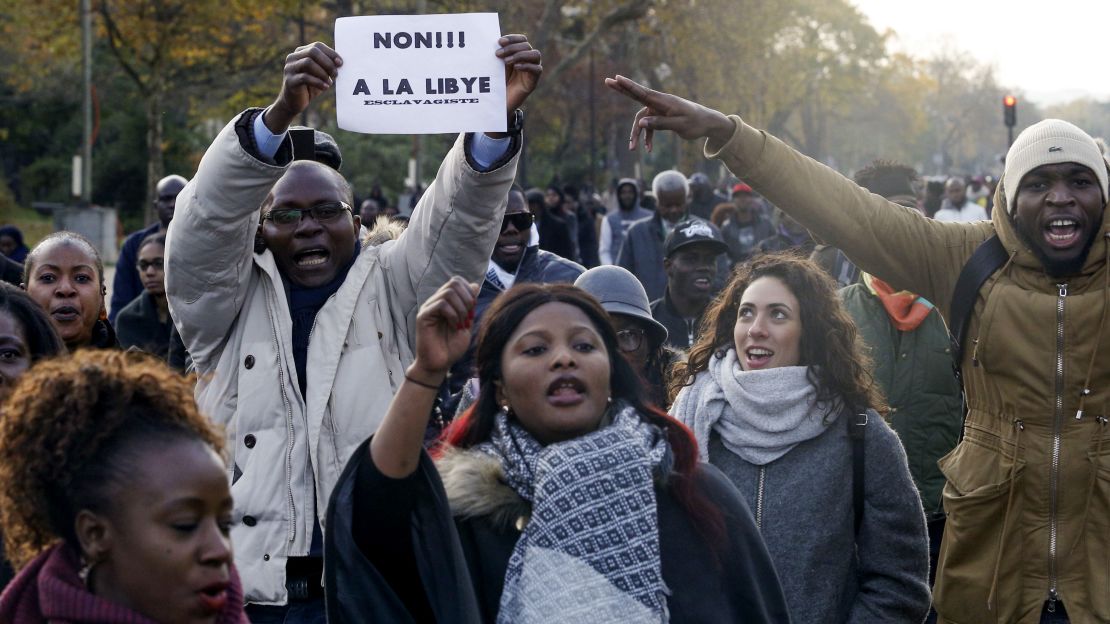Protesters gathered outside the Libyan Embassy in central Paris following an exclusive CNN investigation into migrant auctions in Libya.
“We have to mobilize. We can’t let this kind of thing happen,” one protester told France 24 at the rally Saturday. “Did we really need to see such shocking pictures before taking a stand? I don’t think so.”
After obtaining footage of an auction, CNN’s Nima Elbagir and her crew went to Libya in October to investigate further.
“How can it be that in the 21st century, we’re selling human beings like merchandise?” one woman at the Paris protest said. “I cannot get my head around that!”
Libyan authorities this week launched a formal investigation into the auctions, overseen by the government’s Anti-Illegal Immigration Agency.
“Priorities of the investigation are not only to convict those responsible for these inhumane acts, but also to identify the location of those who have been sold in order to bring them to safety and return them to their countries of origin,” Anes Alazabi, an official with the agency, told CNN.
During its investigation, CNN witnessed a dozen men being sold at an auction outside of the Libyan capital of Tripoli. Some of them were auctioned off for as little as $400. Ultimately, CNN was told of auctions taking place at nine locations throughout Libya, but many more are believed to take place each month.

Tens of thousands fleeing conflict or searching for economic opportunity cross into Libya each year, looking to be smuggled across the Mediterranean Sea.
The United Nations estimates there are 700,000 migrants in Libya, and for years those who have crossed the Mediterranean have shared stories about beatings, kidnapping and enslavement.
“It’s not about color,” the woman at the protest said. “This goes beyond color or religion. This is about humanity.”
CNN’s Lauren Said-Moorhouse contributed to this report

